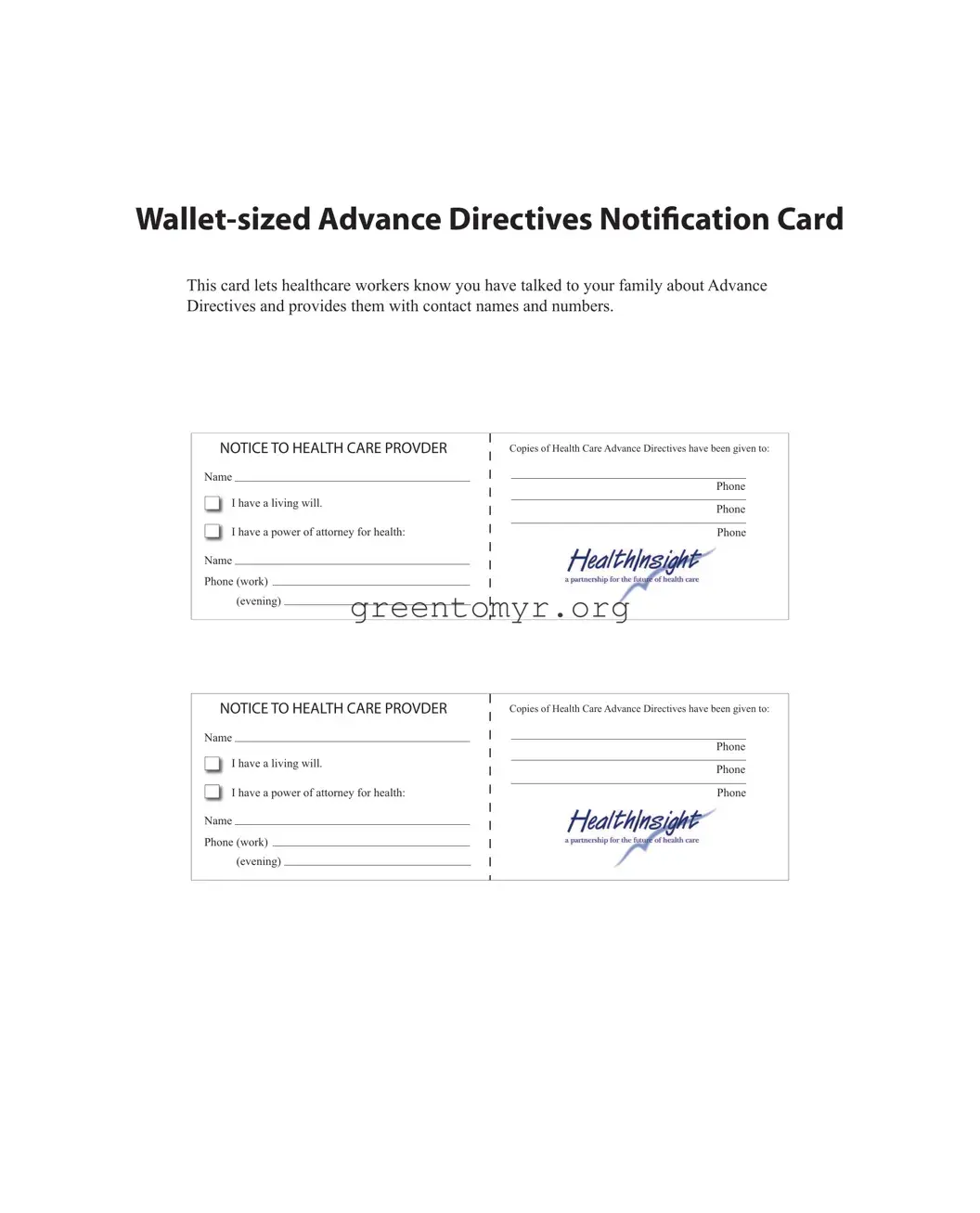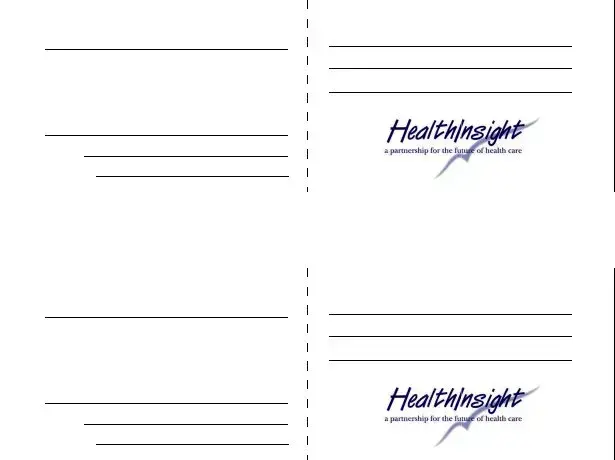When filling out the Advance Vaccine Card form, people often make simple yet significant mistakes. One common error is failing to properly write their names. It’s crucial that the name provided matches official identification to avoid any confusion later on. A discrepancy can lead to delays or issues when healthcare professionals need to verify information.
Another mistake frequently seen is neglecting to include all necessary contact numbers. Each section asks for multiple phone numbers, typically for work and evening contact. Omitting even one can lead to challenges in communication, particularly in emergencies.
Some individuals mistakenly think that leaving any section blank is acceptable. However, each part of the form is important. If a section is not applicable, write "N/A" instead of leaving it blank. This helps clarify that it was not an oversight, but rather an intentional choice.
Many people repeat the same information in both sections of the form, which can create unnecessary duplication. It’s important to provide different contacts or clearly specify if you want to use the same names for both power of attorney designations. Clarity in these details can streamline the process for healthcare providers.
A frequent issue is not reviewing the information before submission. Skipping this step can lead to small mistakes—like typos or incorrect phone numbers—that can have bigger consequences. Always take a moment to double-check everything before handing the form over.
Some individuals forget to indicate whether they have a living will or a power of attorney for health. This information is vital for healthcare workers. Leaving it unmarked can cause frustration during critical times when decisions need to be made quickly.
Not understanding the difference between a living will and a power of attorney for health is also a common pitfall. These are distinct documents that serve different purposes. Mislabeling or mixing them up can hinder effective healthcare planning and execution.
Lastly, many fail to make copies of the Advance Vaccine Card form before submitting it. Keeping a copy allows individuals to have their own records of what was provided, which can be helpful for future reference. It’s always good practice to retain documentation for personal records.
By avoiding these mistakes, individuals can ensure that their Advance Vaccine Card is filled out correctly. Properly completing this form aids healthcare providers in making informed decisions during critical moments.


 I have a living will.
I have a living will. I have a power of attorney for health:
I have a power of attorney for health: I have a living will.
I have a living will. I have a power of attorney for health:
I have a power of attorney for health: